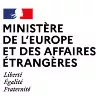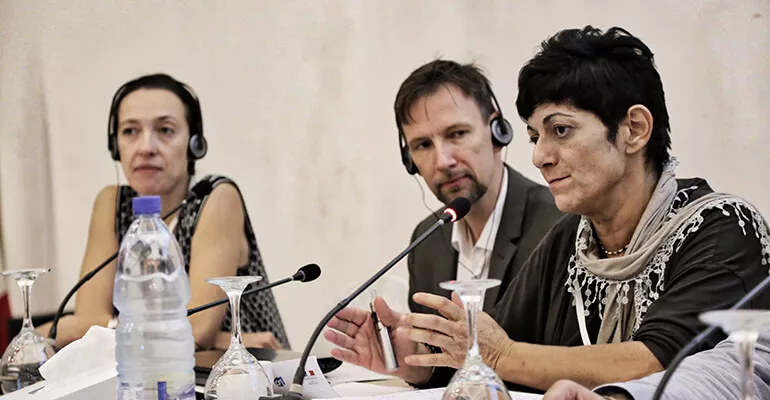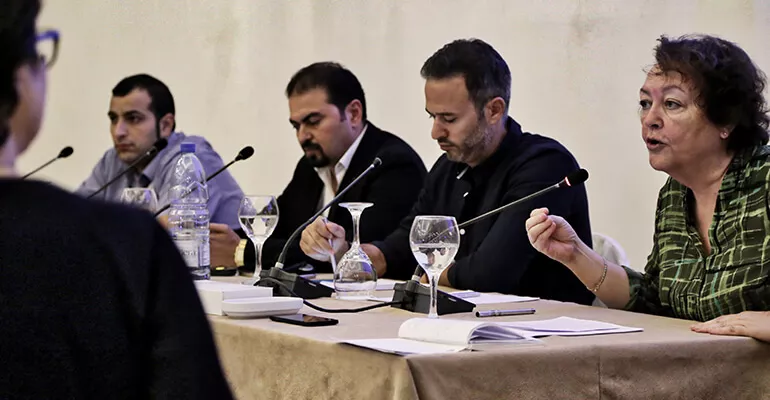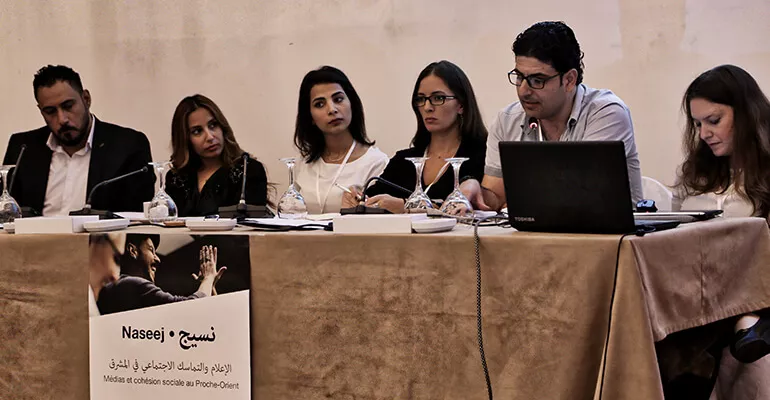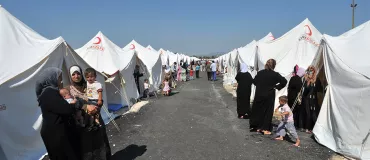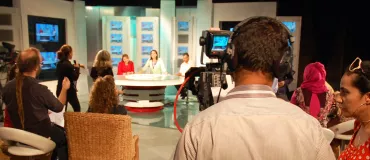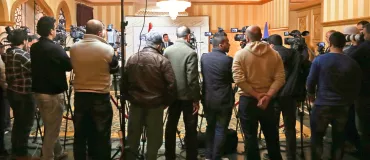
Goals
Presentation
As a result of the ongoing conflicts in Syria and Iraq and the atrocities being committed against civilians, many people have been forced to flee their homes and move to new areas, thereby changing the balance of the host communities and sometimes creating ethnic and religious tension.
In this crisis situation, the media play a key role both in influencing citizens' behaviour and in resolving conflicts, but can also be used to exacerbate any inter-community disputes.
Launched by CFI and the SKeyes Center for Media and Cultural Freedom (run by the Samir Kassir Foundation), the 'Naseej' project – 'Naseej' meaning 'weaving' in Arabic – calls on the media to restore and maintain a balanced and peaceful debate focusing on these issues.
It is being funded by the Crisis and Support Centre (CDCS) of the French Ministry of Europe and Foreign Affairs.
Project beneficiaries
Chief editors and influential journalists in Lebanon, Syria and Ira.
Files to download
Actions
Appraisal of how diversity-related issues are currently being dealt with in the Lebanese, Iraqi and Syrian media
This appraisal will consist of 3 parts:
- a quantitative part, cataloguing the articles and reports dealing directly or indirectly with this subject, analysing their size and frequency, and ranking the various media groups in terms of how often they focus on the subject;
- a qualitative part, examining the terminology, semantic field, cultural references and stereotypes, and assessing whether – in the same media outlet – the subject is dealt with differently depending on the pages and departments;
- a qualitative study of how the public sees this subject being dealt with in the media, by holding focus groups in which the different target groups give their opinions on what is published and broadcast.
Launch of the Naseej Prize
Workshops and meetings with chief editors and influential journalists in the target countries
These workshops and meetings will aim to:
- shed light on their editorial policy – if one exists – regarding this subject;
- share the main recommendations drawn from the appraisal;
- identify key people capable of spreading these recommendations.
This appraisal and these meetings and workshops will make it possible for a practical glossary to be drawn up for presenting non-discriminatory terminology and allowing certain terms to be better understood. This glossary will be sent to journalists in the region and also to the main journalism schools.
In addition, a prize will be awarded to one or more published/broadcast articles or reports focusing on issues relating to diversity and contributing to the values of inclusion, openness and dialogue.

